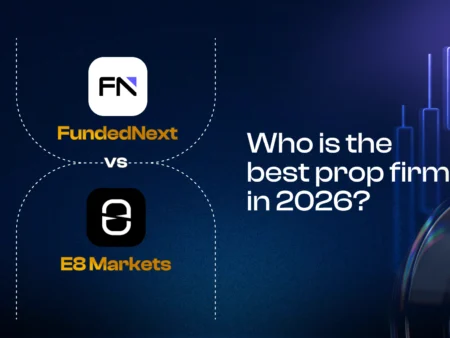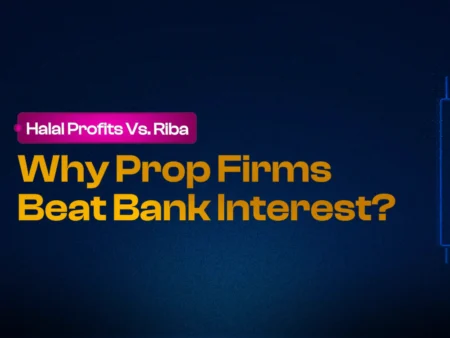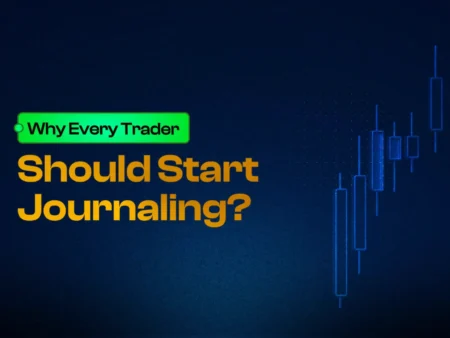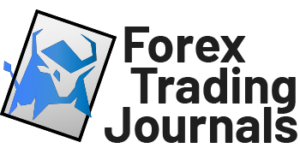Forex trading is a wanted trading market for online traders around the world where every pip matters. In this robust market the operation greatly relies on the forex brokers, through whom the retail traders participate in the live trading world, real market. The difference between profit and loss of forex trading often depends on a broker’s spread—the gap between the bid and ask price. For traders, securing a lowest spread forex broker isn’t just about saving money; it’s about ensuring long-term profitability. Tight spreads reduce entry costs, making them significant for scalpers, day traders, and high-volume strategists.
As we approach 2025, brokers are competing to offer hairline spreads to attract cost-conscious traders. This guide lists the top 5 lowest spread forex brokers for 2025, evaluating their spreads, fees, regulation, and trading tools. Whether you’re a beginner in forex or an experienced trader, these brokers can help you cutoff trading costs and keep more profits in your pocket.
What is a Forex Spread?
A forex spread is the difference between a currency pair’s buy (ask) and sell (bid) price. For example, if EUR/USD is quoted at 1.1050/1.1052, the spread is 2 pips. Brokers profit from this gap, so lower spreads mean lower costs for traders.
Spreads depends on broker and account type. ECN brokers (Electronic Communication Network) mostly offer raw spreads starting at 0.0 pips but charge commissions. STP brokers (Straight Through Processing) might have slightly wider spreads but no commissions. Scalpers and day traders give more priority to tight spreads, while long-term traders may accept wider ones for fewer fees.
Criteria for Choosing the Best Lowest Spread Forex Broker
1. Regulation & Trustworthiness
Regulatory checks are undeniable acts when you think of choosing a forex broker. A broker regulated by top-tier authorities like the Financial Conduct Authority (FCA) in the UK, the Australian Securities and Investments Commission (ASIC), or the Cyprus Securities and Exchange Commission (CySEC) ensures transparency, fund security, and adherence to strict financial standards. This helps protect traders from potential fraud and mismanagement.
2. Account Types & Spread Structure
Forex brokers typically offer various account types, such as ECN (Electronic Communication Network), STP (Straight Through Processing), and standard accounts. ECN accounts often have the tightest spreads, as they allow direct market access, but they may charge commissions (e.g., $3.50 per lot). STP accounts route orders directly to liquidity providers, offering competitive spreads without dealing desk intervention. Standard accounts might have wider spreads but usually come with no commissions. Evaluate these options based on your trading style and cost preferences.
3. Commission Fees
Forex brokers typically offer various account types, such as ECN (Electronic Communication Network), STP (Straight Through Processing), and standard accounts. ECN accounts often have the tightest spreads, as they allow direct market access, but they may charge commissions (e.g., $3.50 per lot). STP accounts route orders directly to liquidity providers, offering competitive spreads without dealing desk intervention. Standard accounts might have wider spreads but usually come with no commissions. Evaluate these options based on your trading style and cost preferences.
4. Trading Platforms
The trading platform is your primary tool for executing trades and analyzing the market. Moreover popular platforms like MetaTrader 4 (MT4), MetaTrader 5 (MT5), and cTrader offer robust features, including real-time spread tracking, charting tools, and fast execution. Choose a platform that provides the functionality you need and is user-friendly.
5. Execution Speed
In volatile markets, execution speed is very important. Slippage, or the difference between the expected price and the actual execution price, can negate the benefits of low spreads. Opt for brokers that offer execution speeds of less than 50 milliseconds to minimize slippage and ensure your trades are executed at the desired price.
6. Leverage
Leverage allows traders to control larger positions with a smaller amount of capital. However, while leverage amplifies potential gains, it also magnifies potential losses. Ensure that the broker’s spreads remain competitive even at higher leverage ratios (e.g., 1:500). Be mindful of the risks associated with high leverage and use it judiciously.
5 Lowest Spread Forex Brokers
| Criteria | Pepperstone | IC Markets | FP Markets | Exness | RoboForex |
|---|---|---|---|---|---|
| Background | Established in 2010, ultra-tight spreads | Popular among scalpers, True ECN | Since 2005, institutional-grade | Combines low spreads with high leverage | Commission-free ECN accounts |
| Average Spread (EUR/USD) | 0.0 pips (Razor account) | 0.1 pips | 0.1 pips (ECN account) | 0.3 pips (Pro account) | 0.0 pips (ECN Pro account) |
| Account Types | Razor (ECN), Standard | Raw Spread, Standard | ECN, Standard | Standard, Pro | ECN Pro, Prime |
| Commissions | $3.50/lot on Razor | $3.00/lot | $3.00/lot (ECN) | Zero on Standard | $20/lot (ECN Pro), Zero (Prime) |
| Regulation | ASIC, FCA, CySEC | ASIC, CySEC | ASIC, CySEC | FCA, CySEC | IFSC, CySEC |
| Platforms | MT4, MT5, cTrader | MT4, MT5, cTrader | MT4, MT5, IRESS | MT4, MT5 | MT4, MT5, R Trader |
| Pros | Lightning-fast execution, no requotes | Deep liquidity, 24/7 support | Advanced charting tools, no slippage | Unlimited leverage, instant withdrawals | Copy trading, crypto spreads |
| Cons | Inactivity fee after 3 months | Limited educational resources | Higher minimum deposit ($100) | Limited product portfolio | Complex fee structure |
1. Pepperstone
Pepperstone was established in 2010 and has since gained a global reputation for offering ultra-tight spreads and ECN (Electronic Communication Network) execution. This means that traders can benefit from very low spreads, which is the difference between the bid and ask price, making it a cost-effective option for trading.
Average Spread
For the EUR/USD currency pair, Pepperstone offers an average spread of 0.0 pips on their Razor account. This is particularly attractive for traders looking for lower or just a little trading costs.
Account Types
Pepperstone provides two main types of accounts:
- Razor Account (ECN): This account type offers the tightest spreads but charges a commission of $3.50 per lot traded.
- Standard Account: This account type has slightly wider spreads but does not charge any commission.
Regulation
Pepperstone is regulated by several top-tier authorities, including:
- ASIC (Australian Securities and Investments Commission)
- FCA (Financial Conduct Authority)
- CySEC (Cyprus Securities and Exchange Commission)
These regulatory bodies ensure that Pepperstone adheres to strict financial standards, providing transparency and security for traders.
Platforms
Pepperstone supports several popular trading platforms, including:
- MetaTrader 4 (MT4)
- MetaTrader 5 (MT5)
- cTrader
These platforms offer robust features, including real-time spread tracking, advanced charting tools, and fast execution speeds.
Pros
- Lightning-fast execution: This ensures that trades are executed quickly, reducing the risk of slippage.
- No requotes: This means that traders can execute trades at the price they see, without any delays or changes in price.
Cons
- Inactivity fee: Pepperstone charges an inactivity fee if an account remains inactive for more than three months. This fee can be a drawback for traders who do not trade frequently.
2. IC Markets
IC Markets is particularly popular among scalpers, who are traders that seek to profit from small price changes and typically execute many trades per day. The broker is renowned for offering raw spreads through True ECN (Electronic Communication Network) technology. This technology allows traders to access the best possible bid and ask prices from various liquidity providers without any dealing desk intervention.
Average Spread
For the EUR/USD currency pair, IC Markets offers an average spread of 0.1 pips. This is quite competitive and beneficial for traders looking to minimize their trading costs.
Account Types
IC Markets provides two main types of accounts:
- Raw Spread Account: This account type offers very tight spreads but charges a commission of $3.00 per lot traded. It’s ideal for traders who prioritize low spreads.
- Standard Account: This account type has slightly wider spreads but does not charge any commission, making it suitable for traders who prefer a commission-free trading environment.
Regulation
IC Markets is regulated by reputable authorities, including:
- ASIC (Australian Securities and Investments Commission)
- CySEC (Cyprus Securities and Exchange Commission)
These regulatory bodies ensure that IC Markets operates with transparency and adheres to strict financial standards, offering protection and security for traders.
Platforms
IC Markets supports several advanced trading platforms, including:
- MetaTrader 4 (MT4)
- MetaTrader 5 (MT5)
- cTrader
These platforms are well-known for their robust features, such as real-time spread tracking, advanced charting tools, and fast execution speeds.
Pros
- Deep liquidity: IC Markets has access to a vast pool of liquidity providers, which ensures that traders can execute large orders without significant price changes.
- 24/7 support: The broker offers round-the-clock customer support, which is beneficial for traders who may need assistance at any time.
Cons
- Limited educational resources: IC Markets may not offer as many educational resources as some other brokers. This can be a drawback for beginner traders who are looking to learn and improve their trading skills.
3. FP Markets
FP Markets, established in 2005, has been providing retail traders with institutional-grade spreads. This broker is known for its competitive pricing and direct market access, which allows traders to benefit from tight spreads that are usually reserved for institutional clients.
Average Spread
For the EUR/USD currency pair, FP Markets offers an average spread of 0.1 pips on their ECN account. This is very attractive for traders seeking to minimize their trading costs.
Account Types
FP Markets offers two main types of accounts:
- ECN Account: This account type provides very tight spreads and charges a commission of $3.00 per lot traded. It is designed for traders who prioritize low spreads and direct market access.
- Standard Account: This account type has slightly wider spreads but does not charge any commission, making it suitable for traders who prefer a commission-free trading environment.
Regulation
FP Markets is regulated by reputable authorities, ensuring transparency and security for traders:
- ASIC (Australian Securities and Investments Commission)
- CySEC (Cyprus Securities and Exchange Commission)
These regulatory bodies enforce strict financial standards, protecting traders from potential fraud and mismanagement.
Platforms
FP Markets supports a variety of trading platforms, catering to different trading needs:
- MetaTrader 4 (MT4): A widely used platform known for its reliability and advanced charting tools.
- MetaTrader 5 (MT5): An upgraded version of MT4, offering additional features and enhanced performance.
- IRESS: A sophisticated trading platform that provides comprehensive market data and advanced charting capabilities.
Pros
- Advanced charting tools: FP Markets offers platforms with robust charting tools, which are essential for technical analysis and making informed trading decisions.
- No slippage: The broker ensures that trades are executed at the expected price, minimizing the risk of slippage, which can be particularly important in fast-moving markets.
Cons
- Higher minimum deposit ($100): FP Markets requires a higher minimum deposit compared to some other brokers. This might be a barrier for traders with limited initial capital.
4. Exness
Exness is a broker that stands out for offering low spreads combined with high leverage, making it an attractive choice for traders who use aggressive trading strategies. High leverage allows traders to control larger positions with a smaller amount of capital, which can amplify both gains and losses.
Average Spread
For the EUR/USD currency pair, Exness offers an average spread of 0.3 pips on their Pro account. This is quite competitive, especially for traders who prioritize low trading costs.
Account Types
Exness provides two main types of accounts:
- Standard Account: This account type is commission-free, making it suitable for traders who prefer not to pay additional fees on their trades. It offers slightly wider spreads compared to the Pro account.
- Pro Account: This account type offers tighter spreads, such as the 0.3 pips on EUR/USD, but may involve other conditions, depending on the broker’s specific terms.
Regulation
Exness is regulated by reputable authorities, which ensures transparency and security for traders:
- FCA (Financial Conduct Authority) in the UK
- CySEC (Cyprus Securities and Exchange Commission)
These regulatory bodies enforce strict financial standards and provide oversight to protect traders from potential fraud and mismanagement.
Platforms
Exness supports popular trading platforms, including:
- MetaTrader 4 (MT4): A widely used platform known for its reliability, advanced charting tools, and extensive range of indicators.
- MetaTrader 5 (MT5): An upgraded version of MT4, offering additional features, faster processing, and more advanced tools for technical and fundamental analysis.
Pros
- Unlimited leverage: Exness offers unlimited leverage, which can be particularly appealing for traders who want to maximize their trading potential. However, it’s important to note that higher leverage also increases the risk of significant losses.
- Instant withdrawals: The broker provides instant withdrawal options, which means that traders can quickly access their funds when needed. This is a convenient feature for those who value liquidity and quick access to their profits.
Cons
- Limited product portfolio: Exness may have a more limited range of financial instruments compared to some other brokers. This can be a drawback for traders looking to diversify their trading across various asset classes.
5. RoboForex
RoboForex was established with the goal of providing a wide range of trading services to meet the needs of diverse traders. One of its standout features is offering commission-free ECN accounts, which makes it an attractive option for cost-conscious traders. ECN (Electronic Communication Network) accounts allow traders to directly interact with liquidity providers, which can result in tighter spreads and better execution.
Average Spread
For the EUR/USD currency pair, RoboForex offers an average spread of 0.0 pips on their ECN Pro account. This is particularly appealing for traders who aim to minimize their trading costs, as lower spreads translate to less cost per trade.
Account Types
RoboForex provides several account types to cater to different trading styles and preferences:
- ECN Pro Account: This account type offers very tight spreads, such as 0.0 pips on EUR/USD, and is designed for professional traders who require optimal trading conditions. The commission for this account type is $20 per lot.
- Prime Account: This account type also offers competitive spreads but comes with a commission-free structure, making it suitable for traders who prefer not to pay additional fees on their trades.
Regulation
RoboForex is regulated by the following authorities:
- IFSC (International Financial Services Commission)
- CySEC (Cyprus Securities and Exchange Commission)
These regulatory bodies ensure that RoboForex adheres to strict financial standards, providing transparency and security for traders. Regulation by these bodies helps to safeguard traders’ funds and ensures that the broker operates fairly.
Platforms
RoboForex supports a variety of trading platforms to suit different trading needs:
- MetaTrader 4 (MT4): A popular and widely used platform known for its reliability, extensive range of indicators, and advanced charting tools.
- MetaTrader 5 (MT5): An upgraded version of MT4, offering additional features, faster processing, and more comprehensive tools for both technical and fundamental analysis.
- R Trader: A web-based platform that provides access to multiple asset classes, including stocks, forex, indices, and cryptocurrencies. It is designed for traders who prefer a versatile and easy-to-use interface.
Pros
- Copy Trading: RoboForex offers copy trading services, allowing traders to follow and replicate the trades of experienced traders. This can be particularly beneficial for novice traders who want to learn from more experienced market participants.
- Crypto Spreads: RoboForex provides competitive spreads on cryptocurrency trading, making it an attractive option for traders interested in the growing crypto market.
Cons
- Complex Fee Structure: The fee structure at RoboForex can be somewhat complex, with different fees applying to different account types and trading conditions. This might require traders to carefully analyze and understand the costs associated with their trading activities to ensure they are getting the best deal.
Why Lowest Spread Forex Broker Matter?
In forex trading, the spread is the difference between the bid (buy) price and the ask (sell) price for a currency pair. A tight spread means this difference is small, while a wide spread means the difference is larger. The spread directly affects trading costs, and here’s why tight spreads are so crucial:
Example: Trading 10 Lots of EUR/USD Daily
Let’s illustrate the importance of tight spreads with an example. Imagine you are trading 10 lots of the EUR/USD currency pair daily. For simplicity, assume that one pip (percentage in point) is worth $10. The impact of spread costs becomes evident when comparing different spreads:
Scenario 1: 0.5-Pip Spread
- Spread Cost per Trade: 0.5 pips ×\times $10 = $5 per lot
- Total Spread Cost per Day: $5 ×\times 10 lots = $50
- Total Spread Cost per Year: $50 ×\times 208 trading days (assuming 5 days a week) = $10,400
Scenario 2: 0.1-Pip Spread
- Spread Cost per Trade: 0.1 pips ×\times $10 = $1 per lot
- Total Spread Cost per Day: $1 ×\times 10 lots = $10
- Total Spread Cost per Year: $10 ×\times 208 trading days = $2,080
Annual Savings
By opting for a broker with a 0.1-pip spread instead of a 0.5-pip spread, you would save $10,400 – $2,080 = $8,320 annually. This significant saving underscores the importance of tight spreads, especially for high-frequency trading strategies where numerous trades are executed each day.
Compound Savings
Tight spreads not only reduce individual trade costs but also compound over time, leading to substantial savings. These savings can be reinvested or used to offset other trading costs, improving overall profitability.
High-Frequency Trading
For high-frequency traders, who execute a large number of trades within short time frames, tight spreads are even more significant. High-frequency trading strategies often rely on small price movements to generate profits. Therefore, minimizing trading costs through tight spreads can make the difference between a profitable and a losing strategy.




